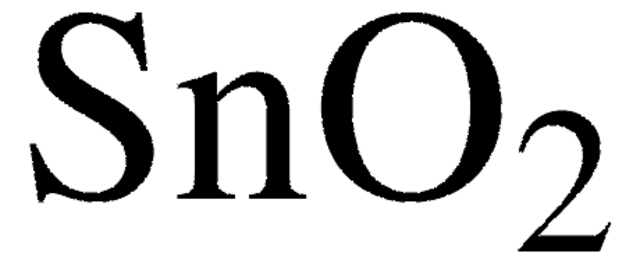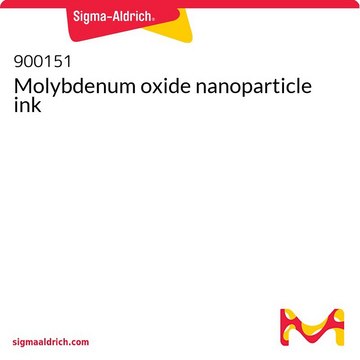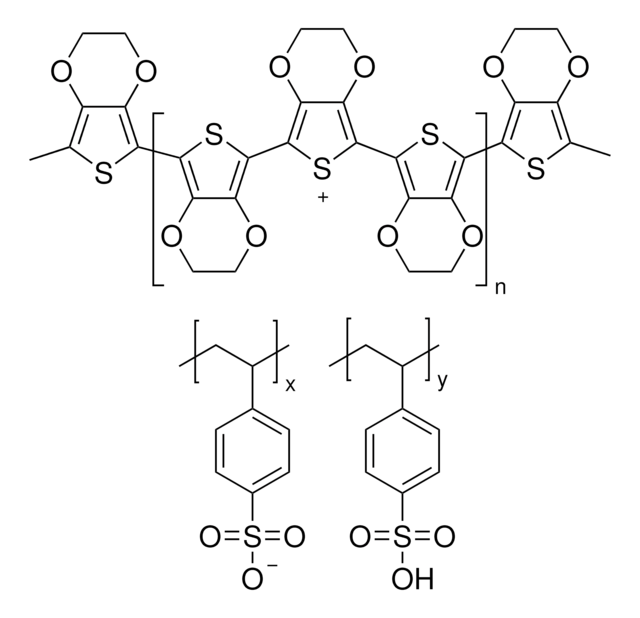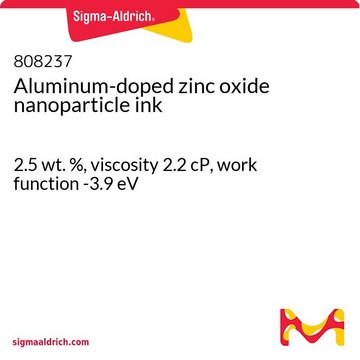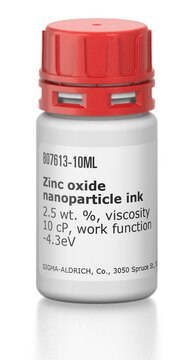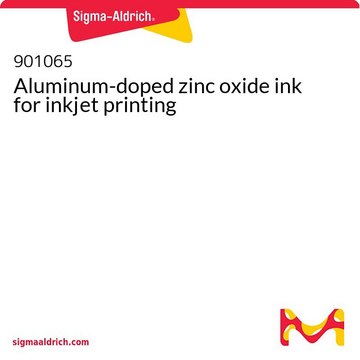901079
Tin(IV) oxide nanoparticle ink
2.5 wt%, viscosity 3.5 cP
Synonym(s):
Avantama N-31, Ink for charge selective layers in printed electronics, SnO2 ink, Tin oxide nanoparticle dispersion
About This Item
Recommended Products
Quality Level
description
Solid content: 2.5 wt% crystalline SnO2 in the mixture of butanols
form
dispersion
color
translucent gray-brown
particle size
7-20 nm
viscosity
3.5 cP
Looking for similar products? Visit Product Comparison Guide
Application
- This SnO2 nanoparticle ink is for charge selective layers in printed electronics.
- This SnO2 nanoparticle ink is for spin-coating, doctor blading, slot-die or inkjet printing.
Caution
- Storage: In dark at room temperature.
- Prior to application: Shake, and filter through 0.2 or 0.45 μm PP filter. Do not use PTFE filter.
- Ink can be diluted with butanol.
- Thickness optimization may be necessary.
- Drying of deposited SnO2 films at >100 °C.
Legal Information
signalword
Danger
Hazard Classifications
Acute Tox. 4 Oral - Eye Dam. 1 - Flam. Liq. 3 - Skin Irrit. 2 - STOT SE 3
target_organs
Central nervous system, Respiratory system
Storage Class
3 - Flammable liquids
wgk_germany
WGK 1
flash_point_f
84.2 °F - closed cup
flash_point_c
29 °C - closed cup
Choose from one of the most recent versions:
Certificates of Analysis (COA)
Don't see the Right Version?
If you require a particular version, you can look up a specific certificate by the Lot or Batch number.
Already Own This Product?
Find documentation for the products that you have recently purchased in the Document Library.
Customers Also Viewed
Articles
Clostridia are relatively large, gram-positive, rod-shaped bacteria that can undergo only anaerobic metabolism.
Clostridium perfringens can cause contamination in undercooked or improperly sterillized canned foods and water. Learn to detect, identify, and differentiate this pathogen.
Our team of scientists has experience in all areas of research including Life Science, Material Science, Chemical Synthesis, Chromatography, Analytical and many others.
Contact Technical Service
